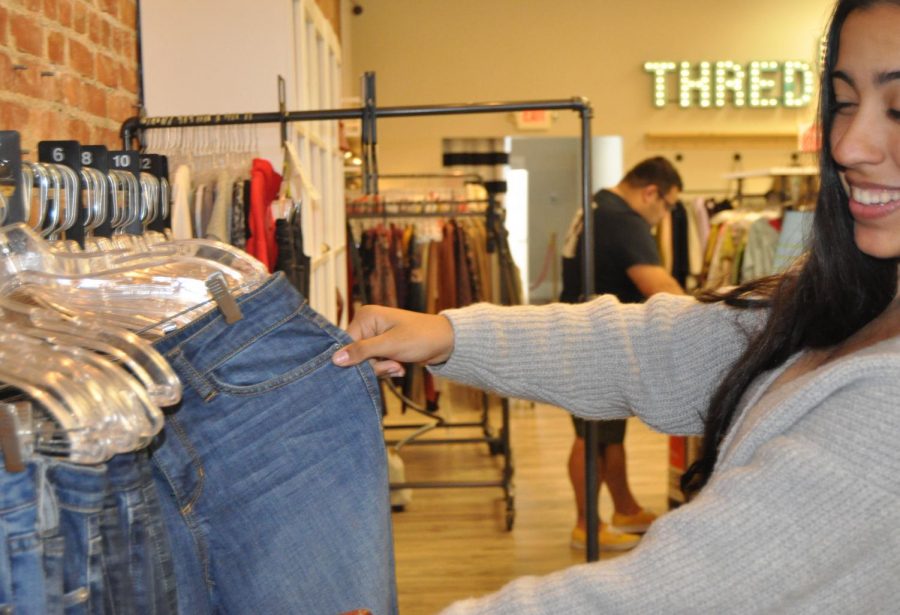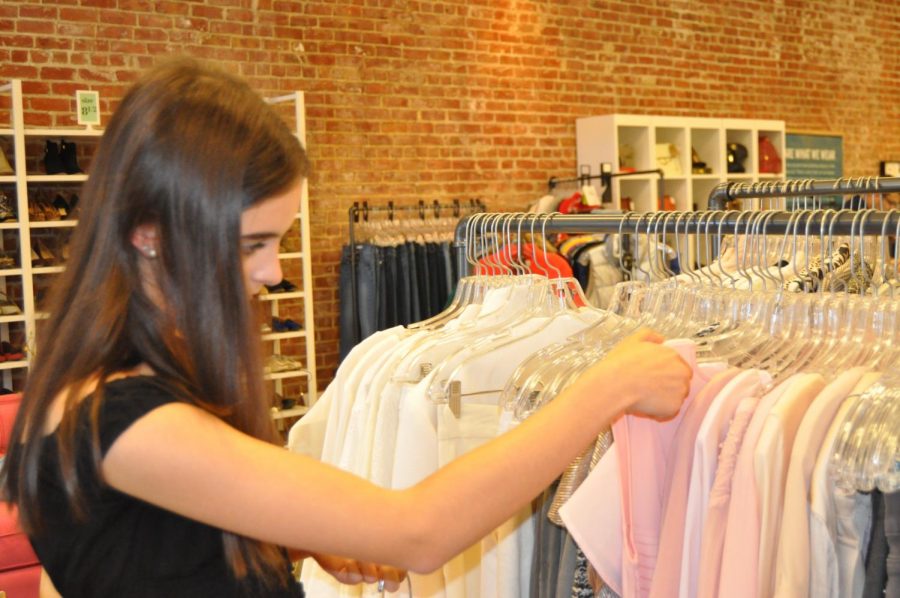Fast-Fashion Forever 21 Faulters
October 17, 2019
Forever 21, a clothing brand known for its “fast-fashion” practices, has filed for bankruptcy, signaling a shift in the priorities of it’s target demographic.
The term “fast-fashion” refers to rapidly mass produced, inexpensive apparel, though this practice is harmful to the environment and humans.
Forever 21 is a quintessential fast-fashion brand that had enjoyed popularity among teens for decades. However, according to reports from National Public Radio, the company filed for Chapter 11 bankruptcy, which may signal a shift in consumer interests as teens explore more sustainable and ethical ways to shop.
AP Environmental Science teacher Tren Kauzer noted the detrimental effects of the fast-fashion industry. “[Shoppers] are the winners with a small price, and the environment and people in developing countries are losing. So really, it’s both a social issue and a huge environmental issue,” said Kauzer.
Thrift-store clothing has gained popularity in response to these human rights and environmental issues. With fast-fashion brands experiencing a backlash for unethical and unsustainable practices, they are struggling to maintain their profit margins. Growing numbers of youth are choosing to buy secondhand clothing over the cheap, low-quality products offered by companies like Forever 21.
“If you buy from places that are secondhand use, it’s not adding to those bad conditions, ” said sophomore Sasha Marishkina.
This secondhand trend is also bolstered by a popular “vintage” clothing style, with teens sporting band tees and Levi’s jeans circa 1980.
“I feel very accomplished when I find things thrifting, because not only are you getting cute clothes for cheap, but you’re helping those being exploited by the fast-fashion industry,” added sophomore Charlotte Medema.
Kauzer stressed the alarming lack of rights that fast-fashion workers have, as manufacturers frequently disregard their employees’ safety, endangering their lives. For example, over 1,000 people died when the Rana Plaza building in Dhaka, Bangladesh, collapsed, according to a BBC News article published in December 2018. Bangladeshi factory managers were faced with the looming threat of foundation cracks, which put workers at risk, but they chose to move on with production as scheduled.
“Do you take care of the cracks and the people, or do you just keep making shirts? Most [fast fashion companies] choose to keep making shirts so that we can consume them,” said Kauzer.
While the interest in brands like Forever 21 is wavering, the appeal of fast-fashion stores’ low prices may continue. Freshman Greta Koslosky said, “I think that there will be another company that will fill Forever 21’s spot.”
Despite this, Forever 21’s bankruptcy may signal an encouraging trend. “I think that the people are listening and voting with [their] wallets. It shows you the power of the consumer and the power of our wallet,” said AP Environmental Science teacher Jane Kelson.


